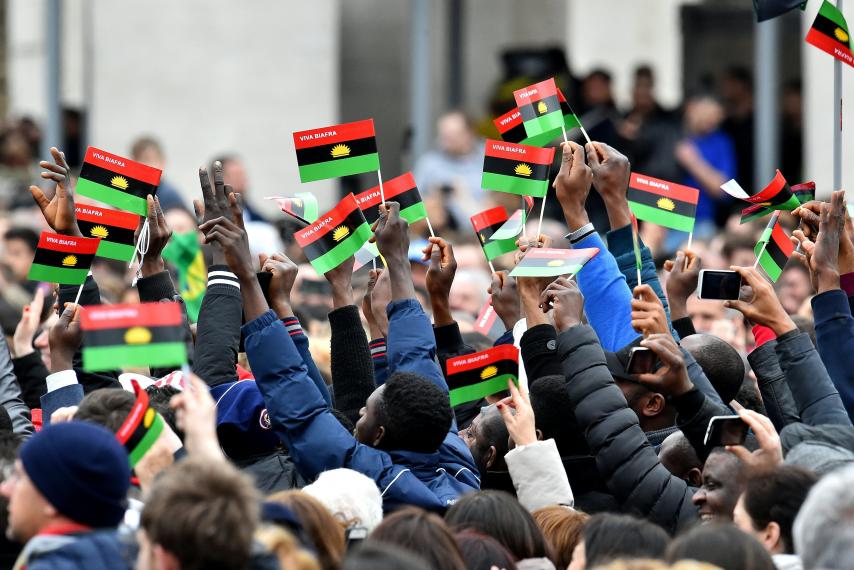ONITSHA, Nigeria — A wave of controversy has rolled across South-East Nigeria, following the decision of regional governors to name the Second Niger Bridge after President Muhammadu Buhari.
The Indigenous People of Biafra (IPOB), a prominent socio-political group in the region, has voiced strong opposition to this action, calling it “a betrayal” of the people.
During the commissioning of the bridge on Tuesday, May 23, 2023, the Minister of Works and Housing, Babatunde Fashola, announced that “after consultation with the South-East governors and other stakeholders, they decided to name the bridge Muhammadu Buhari Second Niger Bridge.”
The decision sparked a swift backlash from IPOB. In a statement on Thursday, May 25, 2023, IPOB spokesman Emma Powerful called for the bridge to be renamed in honor of a prominent Igbo figure.
“The bridge should be named after Dr Alex Ekweueme, Chief Odumegwu Ojukwu, Dr. Sam Mbakwe, Prof. Chinua Achebe, Col. Achuzie, or many others that are well-deserving Igbo indigenes that anyone can suggest,” said Powerful.
He criticized the governors for choosing to name the bridge after a figure who he claims has shown little respect or regard for the Igbo people, and suggested that this move was a betrayal of their regional heritage and identity.
“The man that the second Niger bridge is named after did not even show up for the opening ceremony because he had no respect or regard for Ndigbo and knows that he does not deserve any accolades in Biafra land,” Powerful said in the statement.
In Powerful’s view, naming the bridge after President Buhari reflects a dangerous political alignment. “The sellout among the South Eastern Governors, particularly APC Governors who are the useless idiots of the caliphate, want the genocidist and a hater of Ndigbo, Muhammadu Buhari to become the face of the Eastern Region.”
He concluded with a call to action for the governors, “Naming the Second Niger Bridge after the murderer Buhari must not be allowed. The bridge must be renamed to a meritorious Igbo name.”
This naming controversy adds another layer to the complex socio-political climate of Nigeria, underscoring the persistent ethnic tensions and the delicate balance of power in this West African nation.







